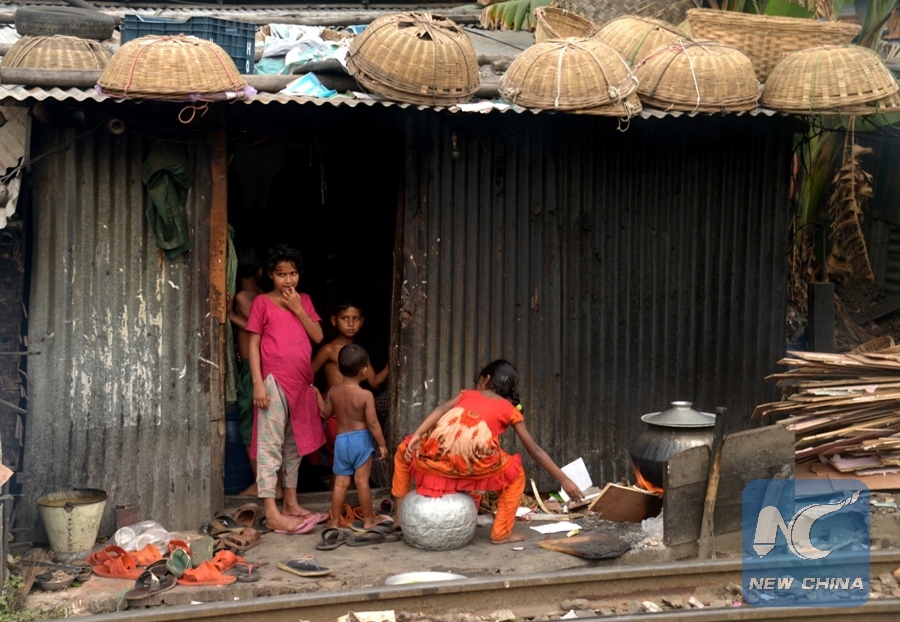
Photo taken on Nov. 18, 2017 shows life in slum houses near rail lines in Dhaka, capital of Bangladesh. There are many slums and squatter settlements in Dhaka that lack of basic services. (Xinhua/Salim Reza)
UNITED NATIONS, July 16 (Xinhua) -- Cooling should be made a center piece of thinking in the context of global warming as the lack of access to cooling has grave economic and social impacts, according to a report of a UN-led initiative, which was released on Monday.
More than 1.1 billion people across the world -- 470 million in poor rural areas and 630 million in urban slums -- face immediate risks from lack of access to cooling, says the report of Sustainable Energy for All (SEforALL).
The report, called "Chilling Prospects: Providing Sustainable Cooling for All," finds that 52 countries are at risk and nine of them have the biggest populations facing significant cooling risks. Most of the worst-affected countries are in Asia and Africa -- Bangladesh, China, India, Indonesia, Pakistan, Mozambique, Nigeria, and Sudan. The other country is Brazil.
The economic impact of heat stress cannot be ignored, says the report, the first ever to quantify the growing risks of the global cooling challenge.
By 2050, work-hour losses by country are expected to be more than 2 percent in 10 world regions and as high as 12 percent in the worst-effected regions of South Asia and West Africa, according to the report. Even a 2 percent per capita loss per year means that, over 30 years, growth in GDP per capita will be halved.
Some 2.3 billion people represent a different kind of cooling risk -- a growing middle class, where limited purchasing options mean they may only be able to afford to buy less expensive and less efficient cooling devices, which could spike global energy demand with profound climate impacts, says the report.
Future choices about refrigerants, the efficiency of cooling technologies, and how cooling is powered will have a significant impact on achieving the Paris Agreement on climate change as cooling is estimated to be responsible for about 10 percent of global warming and its contribution is growing rapidly.
"Cooling for all is about how we make affordable reliable, sustainable cooling solutions that address people's specific needs -- their needs for cooling, for comfort and for productivity, their needs for cooling to guarantee the safety of the vaccine supply chain, and their needs for access to cold chain to guarantee the safety of their food," said Rachel Kyte, SEforALL CEO and special representative of the UN secretary-general for sustainable energy.
"It is important that we put cooling front and center in the ways in which we meet people's needs," she told reporters at UN Headquarters.
Sustainable Energy for All is a UN-led global initiative launched in 2011 to achieve universal energy access, improve energy efficiency, and increase the use of renewable energy.

